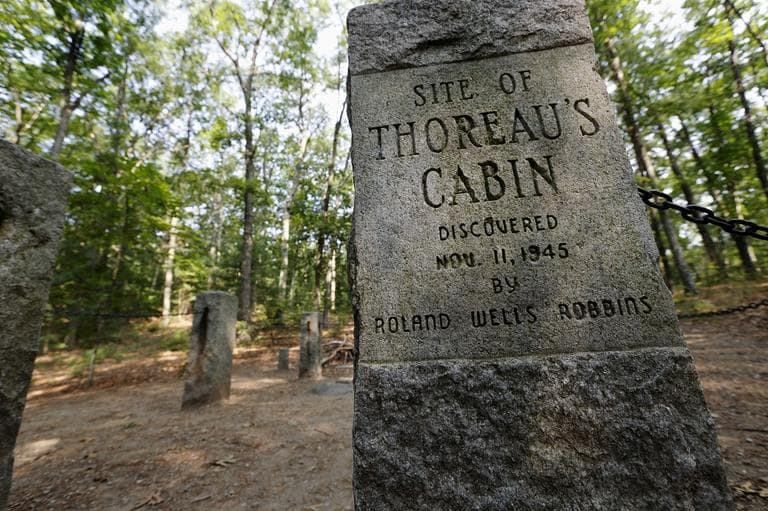Advertisement
Thoreau's 150th Death Anniversary Marked In Mass.

Members of the oldest and largest organizations devoted to the legacy of Henry David Thoreau gathered in Massachusetts on Saturday to mark the passage of 150 years since the philosopher, naturalist and writer died.
More than 200 members of the Thoreau Society were in Concord for the third day of their annual gathering. The event, scheduled to end Sunday, featured nature walks, workshops and a keynote speech by two-time Pulitzer Prize winning scientist Edward O. Wilson.
Thoreau, who lived from 1817 to 1862, is well-known for his reflections on simple living in nature, especially through his book "Walden," about his two-year retreat in a small house on Walden Pond in his hometown of Concord. He also wrote "The Maine Woods," a lesser-known book about his observations and thoughts during his three journeys to northern Maine in 1846, 1853 and 1857. Thoreau, who died in Concord, supported nonviolent protest to unjust laws in his essay "Civil Disobedience" and was opposed to slavery.
Wilson read an open letter to Thoreau at the historic First Parish, describing him as the "founding saint of the conservation movement." Wilson recalled a scene Thoreau described in "Walden" - a war between red ants locking jaws in combat.
"May I presume to tell you what you saw? It was most likely a slave raid," said Wilson, an expert on ants. The red ants, Wilson said, were in all likelihood fighting over the black ant pupae they intended to kidnap and would later mature into the red ants' slaves. "Imagine that! A slave raid on the doorstep of a leading abolitionist!" Wilson said.
Wilson took questions from the audience and spoke at length of the "overwhelming responsibility that everyone should feel" to learn everything about life and the natural world to be able to help preserve it.
"We must rescue young people from urban settings" and teach them a curiosity of the natural world, he said.
As human understanding of science and the natural world deepens, Wilson said, it will rely less on philosophy and religion. He said advances in biology will enable scientists to find solutions to many of today's problems and help enrich the production of the humanities as well.
"This will be the century of biology," Wilson predicted.
This program aired on July 14, 2012. The audio for this program is not available.